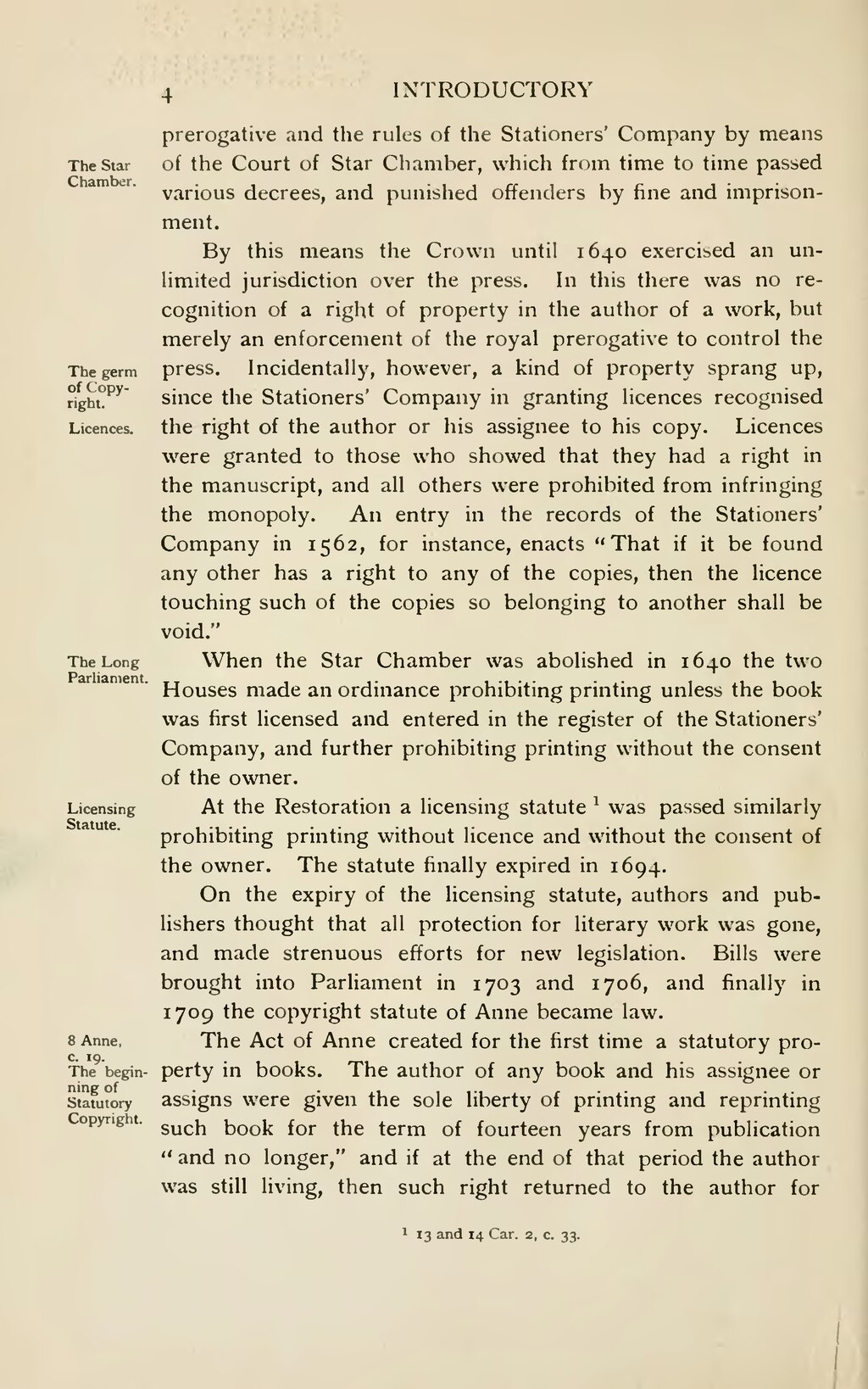prerogative and the rules of the Stationers' Company by means The Star
Chamber. of the Court of Star Chamber, which from time to time passed various decrees, and punished offenders by fine and imprisonment.
By this means the Crown until 1640 exercised an unlimited jurisdiction over the press. In this there was no recognition of a right of property in the author of a work, but merely an enforcement of the royal prerogative to control the press. The germ
of Copy-
right.
Licences.Incidentally, however, a kind of property sprang up, since the Stationers' Company in granting licences recognised the right of the author or his assignee to his copy. Licences were granted to those who showed that they had a right in the manuscript, and all others were prohibited from infringing the monopoly. An entry in the records of the Stationers' Company in 1562, for instance, enacts "That if it be found any other has a right to any of the copies, then the licence touching such of the copies so belonging to another shall be void."
The Long
Parliament.When the Star Chamber was abolished in 1640 the two Houses made an ordinance prohibiting printing unless the book was first licensed and entered in the register of the Stationers' Company, and further prohibiting printing without the consent of the owner.
Licensing
Statute.At the Restoration a licensing statute[1] was passed similarly prohibiting printing without licence and without the consent of the owner. The statute finally expired in 1694. On the expiry of the licensing statute, authors and publishers thought that all protection for literary work was gone, and made strenuous efforts for new legislation. Bills were brought into Parliament in 1703 and 1706, and finally in 1709 the copyright statute of Anne became law.
8 Anne,
c. 19.
The begin-
ning of
Statutory
Copyright.The Act of Anne created for the first time a statutory property in books. The author of any book and his assignee or assigns were given the sole liberty of printing and reprinting such book for the term of fourteen years from publication "and no longer," and if at the end of that period the author was still living, then such right returned to the author for
- ↑ 13 and 14 Car. 2, c. 33.
